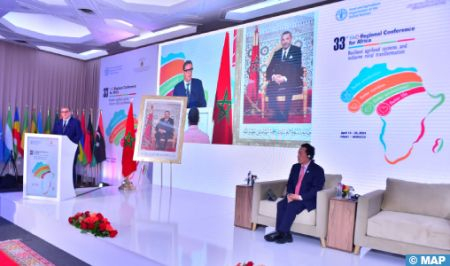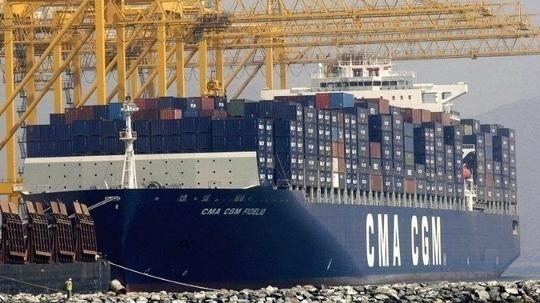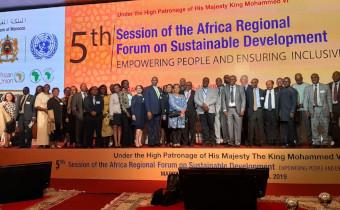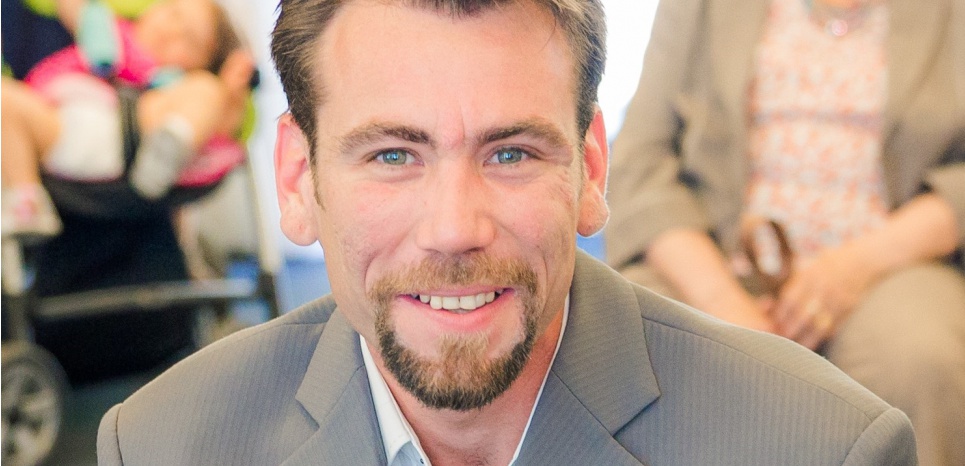The 33rd session of the Food and Agriculture Organization’s Regional Conference for Africa (ARC33) kicked off on Thursday in Rabat, under the chairmanship of Head of Government, Aziz Akhannouch.
The three-day conference, held under the theme: “Resilient agri-food systems and inclusive rural transformation”, offers a major opportunity for African countries to discuss practical and concrete solutions for food security and improved agricultural production, and to define priorities with the FAO for the next two years, with the aim of achieving transformative and sustainable change in agri-food systems across the continent.
The conference will also enable members and other stakeholders to share best practices, explore partnerships, discuss opportunities, as well as provide regional guidance on transforming agri-food systems in Africa.
This major conference features ministerial roundtables, the launch of new FAO publications and special events on several topics, such as stimulating public and private sector investment through the financing of resilient agrifood systems, blue transformation in Africa and the potential of aquatic foods, in addition to the drivers and triggers for the transformation of agrifood systems in Africa.
In an opening address, FAO Director General Dongyu Qu said Morocco is a leading regional model for the transformation of agrifood systems, noting that by focusing on modernization and diversification, the Kingdom had been able to achieve significant progress, including investment in modern irrigation systems, greenhouse cultivation and aquaculture, increased production of fruit and vegetables for domestic and export markets, and modernization of its olive oil production to become one of the world’s leading producers.
At the African level, the FAO Chief referred to the “extraordinary” potential offered by Africa’s youth, noting that achieving this requires setting up strategic partnerships, injecting greater investments, and harnessing the power of digital technologies to boost the efficiency and productivity of Africa’s agricultural sectors.
“It is through the transformation of African agri-food systems that we can unlock food security and nutrition, economic equality, and environmental and resilience benefits,” he said.
For his part, Head of Government, Aziz Akhannouch, highlighted Morocco’s dams experience, pointing out that the Kingdom has drawn up a policy in this regard whose development has been pursued under the leadership of King Mohammed VI.
With regard to the water issue, the latest investment announced over a 5-6 year period, amounting to 14 billion dollars, is earmarked for drinking water and agriculture and includes water desalination, and conventional and non-conventional water linked to the dam policy, said Akhannouch.
In the same vein, he underlined Morocco’s “very important” commitment to this resource, which is necessary for agriculture, and for which all means should be mobilized to ensure its financing.
The Head of Government also referred to the strategies developed by Morocco in the agricultural sector, including the Green Morocco Plan, which involved restructuring the agricultural field, organizing and grouping players, increasing production and productivity, and putting investment at the center of the equation for the development of the agricultural sector.



